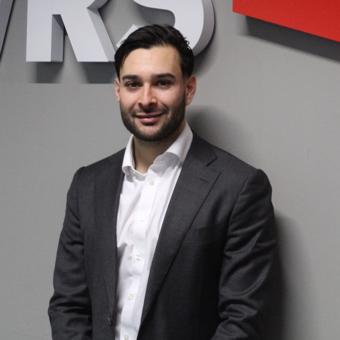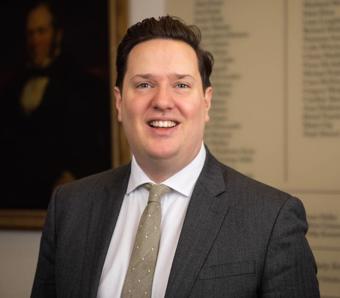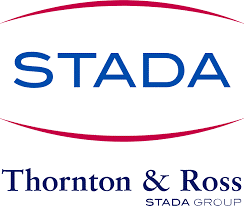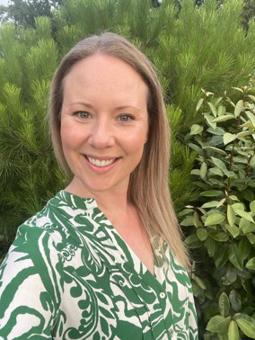Nick Lees of Walker Morris, Leeds
What is your role at Walker Morris? I’m an associate in the commercial dispute resolution group.
Why did you choose a career in law? I was better with words than numbers at school which pointed me in the direction of a career in law. In the absence of any great ideas or entrepreneurial spark for setting up my own business, I left University in need of work and went for the relative security of a career in law and I've never looked back.
What's the best thing about your job? We encounter a lot of different businesses and people in this job, working for different clients on different types of dispute. The variety of challenges and experiences is the best thing about this job, there is rarely a dull moment.
What keeps you working at Walker Morris? I started my career working at a City law firm (Ashurst) for five years and I thoroughly enjoyed my time there. However, I prefer to live outside of London but I still want to be involved with challenging and high quality legal work. Walker Morris provides that opportunity from our base in Leeds. We work with some excellent clients including large overseas corporates in addition to UK based businesses on high value complex litigations. The work is challenging but rewarding and that's what I want from my career without the misery of the daily commute into London.
After leaving London, I worked at a large international law firm with offices in Leeds and then at an expanding national law firm before joining Walker Morris. I have therefore experienced, first hand, different cultures in different models of law firm. From my point of view, one of the great features of Walker Morris is that we have the size and scale to work on significant matters but at the same time we are of a size that encourages a strong entrepreneurial and collaborative culture. We all work in one place which allows us to forge strong relationships across the different parts of the firm. We are also not judged on the basis of the hours worked or the time recorded but on the contribution we make in delivering value and excellence for our clients. Walker Morris is definitely not a place for a quiet life as the people who work here are motivated and committed to doing the best for our clients. However, there is always a sense of fun and collaboration that makes for a rewarding career.
What's the most interesting case you have dealt with? I spent the first three years of my career working as part of a large team on the Sumitomo copper litigation which arose from the rogue trading of Yasuo Hamanaka of Sumitomo Corporation during the 1990s. The losses dwarfed those of Nick Leeson from Barings but Hamanaka was never as well known in the UK as Mr Leeson. The sheer size, scale and value of the litigation was something quite extraordinary and it was fascinating to be a part of that. It also helped that there was a fair amount of international business travel to Tokyo and New York over a 12 month period which all seemed very glamorous at the time. I once crossed the international date line and took proofs of evidence in Japan and the US on the same day. I’m not sure that I would fancy that sort of thing so much now with wife and baby at home - or at least I wouldn't admit to them that work travel can be fun.
Where do you see your firm in five to ten years? Ask Ian Gilbert, our managing partner. Seriously, from my point of view, I hope that as I develop through the firm with my peers, everyone at Walker Morris will appreciate the importance of preserving the ethos and culture of the firm which is oriented around delivering excellence and value for our clients and seeking to enjoy what we do, being committed and doing it well.
There is a lot of consolidation underway in the commercial legal sector. For non-commoditised work, I'm not sure big is always best from what I have seen during my career. Firms that grow by bolting on revenue through lateral partner hires might struggle to develop a unique and cohesive culture. This has been developed at Walker Morris over many years and has proved to be successful on a number of levels; financially and in the quality of work and the people here, all of which are linked. Very large firms have to operate more like a large corporate organisation with a number of layers of management.
At Walker Morris I sit a few doors down from the people who are in a position to make decisions affecting my career and we talk in an open and frank manner on a daily basis about all manner of things from client work, marketing activity, workloads though to chatting about what the competition are working on. It will be interesting to see where Walker Morris is in 10 years compared to some of the other commercial firms operating in Leeds which have chosen a different path. That's not to say there is only one way as there are some excellent firms operating from offices based in Leeds which will continue to thrive and it’s good to see people succeeding in different ways. A thriving and diverse legal community in Leeds is good for all of us who live and work in the region.
What would you have been if you weren't a lawyer? I think a journalist working on a political or business desk ideally for the BBC. Is it too late?
What would you advise lawyers beginning their legal career today? Be patient. The longer you do the job the more fascinating it becomes as you begin to appreciate how what you are doing fits into the bigger picture and what a privilege it is to be exposed to so many different characters from different walks of life. The first few years can be a hard slog as you learn the ropes and how to handle people; we come across some difficult characters in this job who are thankfully massively outnumbered by the fascinating, charming and gracious people we get to deal with.
What do you think will be the biggest challenges/ opportunities Over the next 12 months? For law firms I perceive - and people may disagree - the world is changing as clients (and not only large organisations with significant purchasing power and a lot of repeat work) drive harder and harder bargains on fees billed by reference to hourly rates. For a commercial litigator it will be fascinating to see how the profession embraces (or not) the advent of damaged based agreements (contingency fees). You would think there is massive potential here but I should think firms will need to be in good shape financially and doing large value cases to make this work. We will see.










